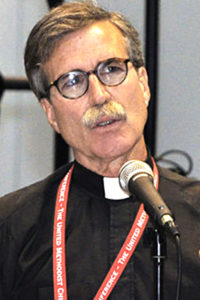Thinking about Abortion and Democracy
For nearly 50 years, the Supreme Court’s Roe v. Wade decision has deprived American citizens of their rightful voice and vote on life and abortion. Certainly, citizens have voted for United States representatives, senators, and presidents who acted on secondary matters such as whether or not the federal government would pay for abortions and who would be appointed to the Supreme Court. Still, Roe has remained in place, protecting the right to choose abortion through the ninth month of pregnancy. The numbers tell the story: Since 1973, approximately 60 million unborn children have been put to death in the United States. Consider that number again: 60 million.
If the Supreme Court declares Roe unconstitutional in the upcoming Dobbs decision (as it apparently will), the states will be required to practice democracy: to propose, debate, vote, and adopt their own laws on life and abortion. And yet, some of our fellow citizens loudly—and perversely—protest that the overturning of Roe would amount to a deprivation of democracy.
It was Roe itself that was anti-democratic. Back in the 1970s, not a few leaders in American public life expressed the desire for the Supreme Court to remove the contentious issue of abortion from the democratic process and “settle” it. Some of them believed that American democracy was too fragile to handle the heavy-duty debating and decision-making it required; they feared the abortion issue—which calls into play first principles, morality, and religious belief—would be too much for democratic structures to bear. Again, their solution was to remove the matter from the legislative branch, kick it over to the judiciary, and let nine unelected justices rule on it. Not exactly democracy in action.
As a United Methodist, I have witnessed the desperate cry for democracy before. Since the establishment of The United Methodist Church in 1968, the church has struggled over its teaching on human sexuality—particularly regarding homosexuality. Early on, the church’s General Conference adopted traditional teaching on homosexual activity, which has been challenged at every General Conference since then. In 2019, a special General Conference was held to vote on the matter. The very moment that the deciding vote (which upheld the traditional teaching) was announced, liberals and progressives—on the General Conference floor, in the gallery, and among the digital audience—erupted in protest. They yelled. Screamed. Cried. Moaned. Groaned. Chanted. Bullied. They did everything but respect the democratic process. To this day, liberal and progressive United Methodists refuse to accept the result of the vote, insisting on having their own way on matters related to human sexuality. Because the democratic General Conference decided against their preferred teaching, they are dividing (perhaps dismantling) the church.
It could be that the same dark dynamic threatens America. In the name of democracy, liberals and progressives are standing up for Roe v. Wade—even though Roe has undermined democracy for nearly five decades. Furthermore, their fervor is leading some of them to engage in criminal activity—violence against pro-life organizations, protests at the homes of Supreme Court justices, death threats against officials, and so on. The country is beginning to look like The United Methodist Church: liberals and progressives are willing to “burn it down” to get their way.
Democracy—patient, thoughtful, steady, law-abiding, and law-upholding democracy—is the optimal decision-making process for Americans. Democracy, at its best, preserves institutions.
Democracy minimizes violence. Democracy allows the common good to be planted and flourish. However, democracy requires those who do not win in the decision-making process to accept the result—and plan for another day to make their proposals and advance their cause.
The Supreme Court’s setting aside of Roe will, under God’s providence, allow democracy in America to be renewed. And when it is, countless unborn children and their mothers will be protected from abortion. But not all. That is why the debate on life and abortion will continue. Democratically.










